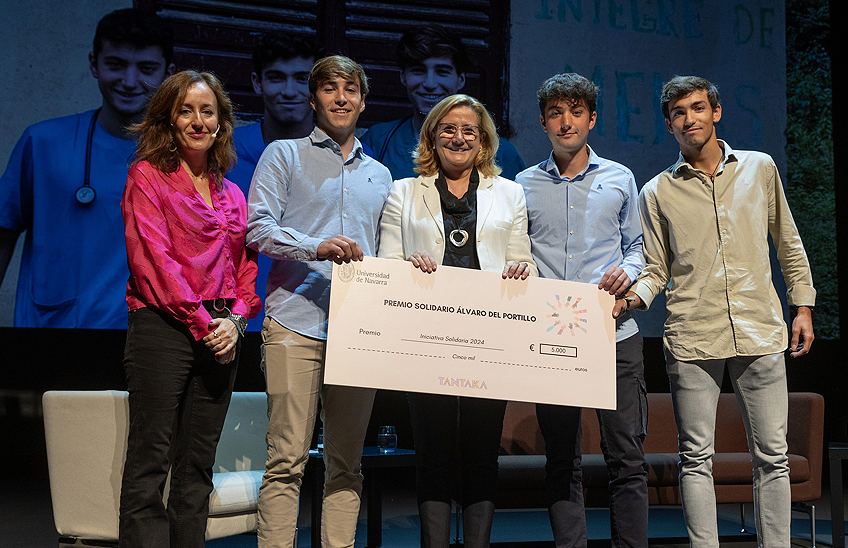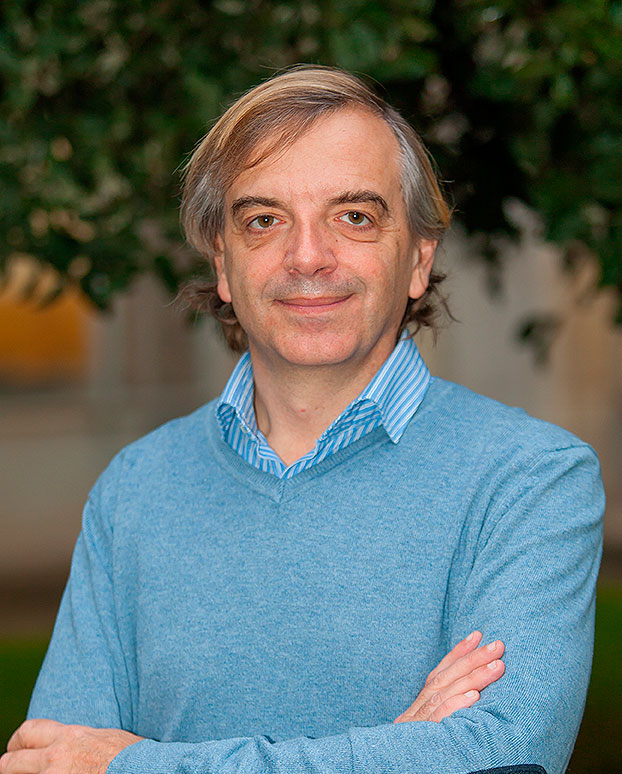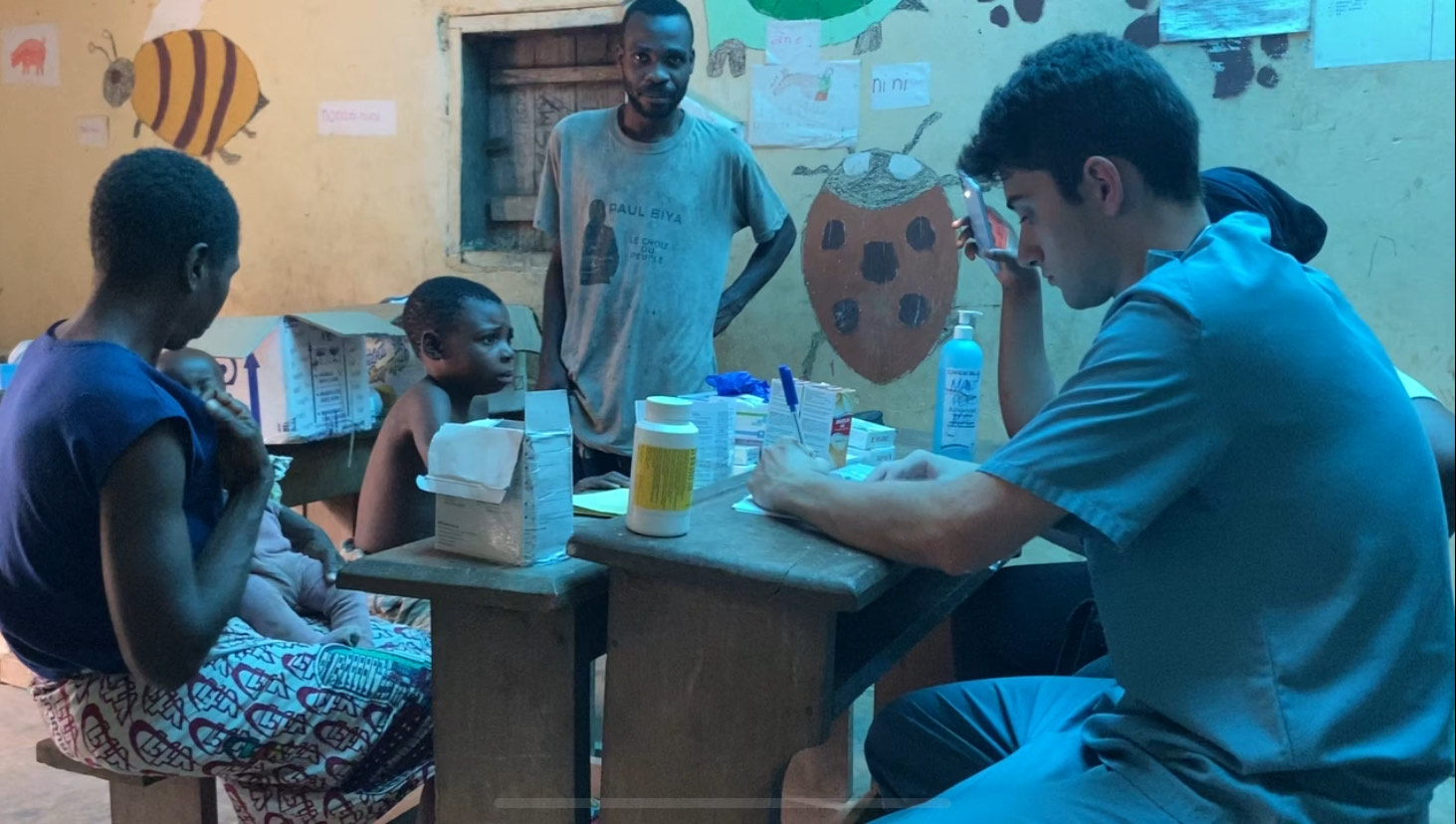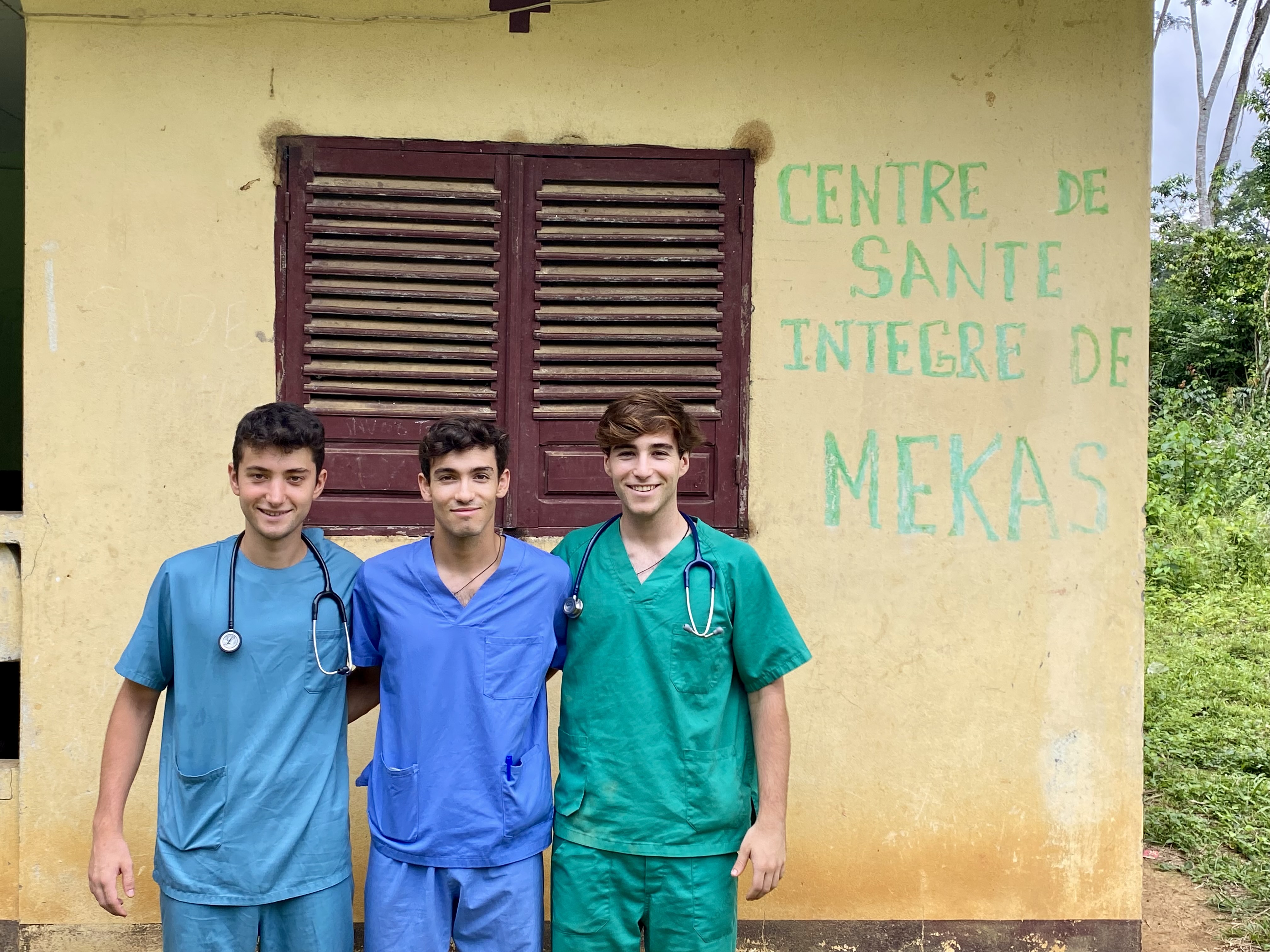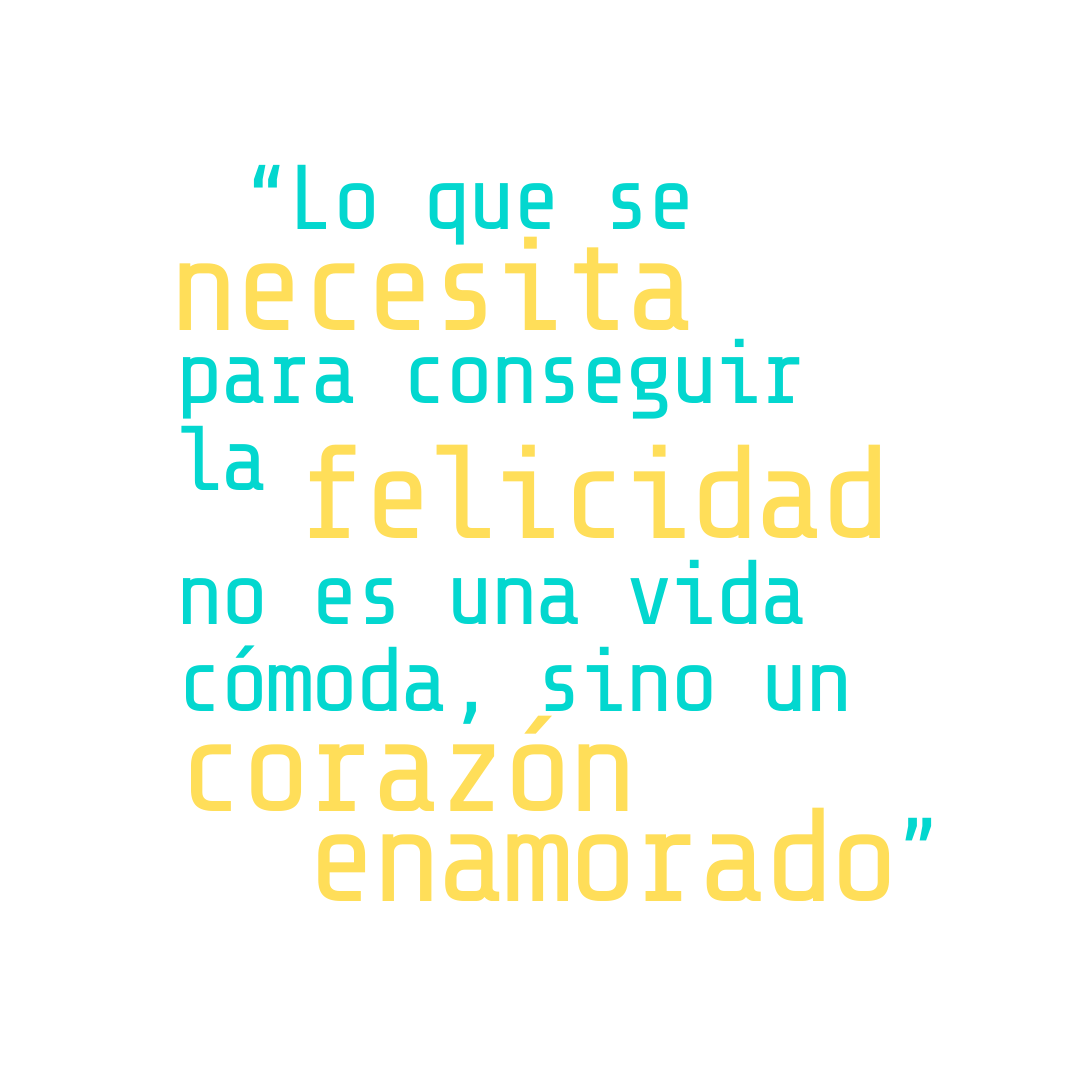
St. Josemaría, founder of the University, was a man deeply in love with God, his family, his friends. That is why he knew that there, in love, is the secret of happiness.
But what is happiness? And, above all, is it possible to be happy at university?
What does it mean to be happy
and how was St. Josemaría happy?
XavierBringué, professor at School of Communication, gave a brief talk at framework of Founder's Week, which this year focused on happiness and the way in which St. Josemaría spoke of it in his life and teachings.
"I can't give an exact definition, but I can say that the topic of happiness seems to be on several planes," assures Professor Bringué. "First, you have to be able to see yourself in your reality; and then, you have to be able to assume that reality. Sometimes what breaks happiness is the inability to see what is happening to us. Finally, you have to realize everything that transcends. Therein lies the question of the meaning of life, of whether there is something more," he explains. And he adds: "Pursuing happiness is not about finding a single answer, but finding a better question. It's about running out of questions and getting rid of your own prejudices. You don't have to be afraid to break those ideas; it's about being humble".
Asked about the relationship between happiness and the university, Prof. Xavier Bringué turns to the figure of St. Josemaría, recalling another of the aspects with which the saint related happiness. "Happiness is a challenge and St. Josemaría linked it to freedom. When he was asked what characteristic defined the university, he always spoke of the freedom of professors and students. Here is the core topic: being free means respecting people who think differently, not judging, and accompanying those who cross our path in the honest search for the truth. And this idea of the search for truth in the service of the things that matter to us makes us happy," he explains. "From that freedom also comes commitment. From that freedom do not arise subjects who get it right, but committed subjects, imperfect, but free," he concludes.
Happiness at the University
and happiness in St. Josemaría
Alsoat the central event of Founder's Week, there was a talk at colloquium with Carlos Soria, author of the book "St. Josemaría and the University," and professors Nacho Ferrero and Asunción de la Iglesia. The three spoke of joy as a distinctive sign of the University, inspired by the happiness and good humor of its founder, and a consequence of his eagerness to serve society. They also shared their concerns and experiences on how to help students to be happy, without shortcuts or substitutes.

Carlos Soria
Former professor at School and author of "St. Josemaría and the University.
author of "St. Josemaría and the University".
|
|
|
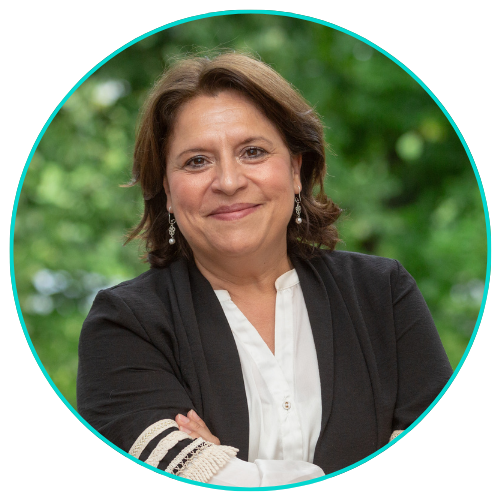
Asunción de la Iglesia
Professor of Law School
|
|
|

Ignacio Ferrero
Professor at School of Economics
 |
|
First solidarity award "Álvaro del Portillo".
In the framework of the Founder's Week, the I "award solidario Álvaro del Portillo", a award instituted in report of the second Chancellor of the University, and that has recognized the best solidarity initiative led by students and staff of the University of Navarra during the academic year 2023-2024 has been delivered.
The winning project was "No Baka without healthcare", designed and initiated by three 5th year medical students: Sergi Carulla, Juan Uranga and Ignacio Zúñiga. The initiative, developed in partnership with the NGO Zerca y Lejos (ZYL), seeks to strengthen access to medical care for the Baka pygmies in Afanavoto, in the department of Dja et Lobo, in the southern province of Cameroon.
